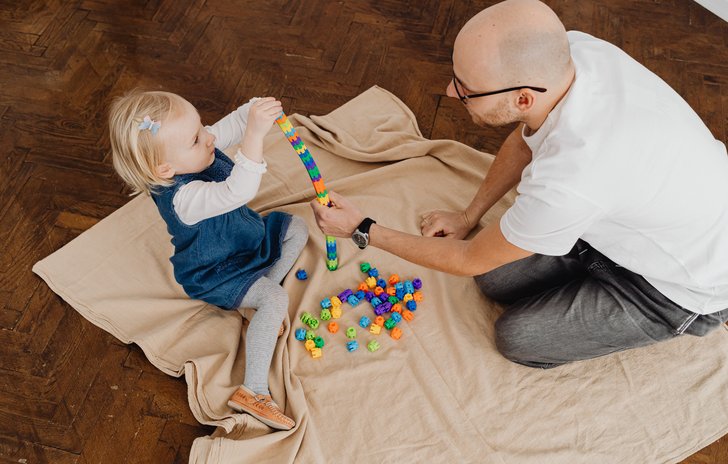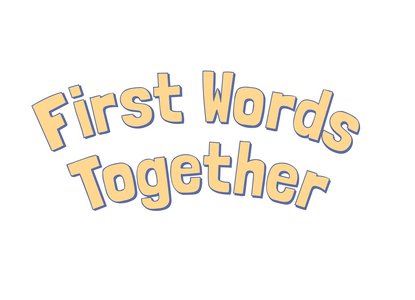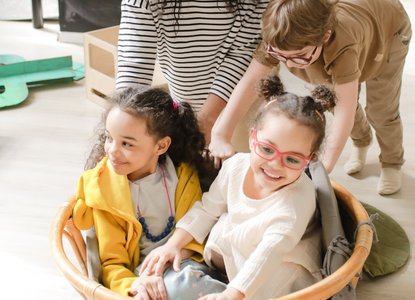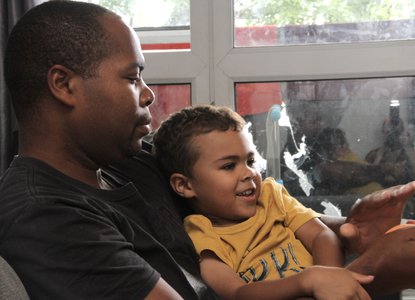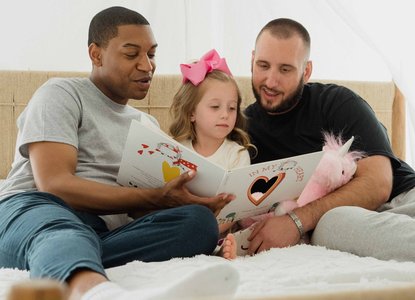Children learn while they are playing. You can help them learn even more by chatting to them about what they’re doing. Try it out next time you have play time at home or when you’re out and about.
Ask your child questions about their favourite toys. Comment about what they’re doing, for example: “You’re pushing the car”. Or make suggestions to extend their play: “I wonder which car goes faster?”.
You can encourage them to talk about the game they’re playing. Imaginative games are an important part of growing up – notice if your child has made up stories or personalities for their toys.
Children will find ordinary objects you have around your home just as appealing to play with as toys. For example, they might like to pretend to cook with a spoon and a bowl. You can support their play by asking, “What shall we make?” "Which ingredients will we need?" Just make sure what they’re playing with is safe for children!
Give them time to think about what you’re saying and come up with a response.
Watch and learn
Watch a mum role-playing with her child, using toys and creating characters. She follows her daughter's lead to encourage her to express her thoughts and ideas.
Good to know
Play is very important for children. When you play with them, you are teaching them communication and social skills, as well as helping them to learn new words.
